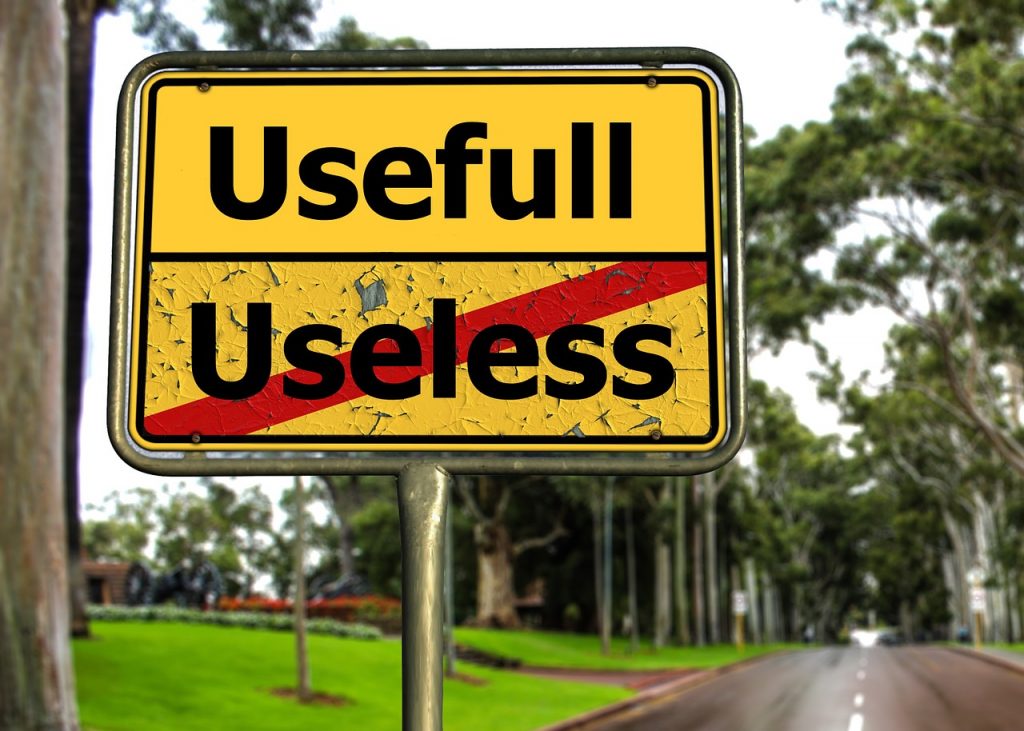Web Hosting Trend 2017: Dedicated WordPress Providers on the Rise; But Why?

There are two defining trends of web hosting 2017. One is the transition from physical to virtual hosting, the so-called cloud. The other is the rise of dedicated WordPress providers.
 Not everything that's possible makes sense... (Cartoon: Noupe)[/caption]
At the same time, there's an upcoming trend that I can't really understand. More and more providers have started to offer dedicated WordPress hosting, some exclusively, and some as an added service. Here, you won't get free web space for whichever project you need to get hosted. Instead, you'll get a complete, installed, and maintained WordPress website. Essentially, you get the same thing you can book at WordPress.com, but outside of WordPress.com.
From my point of view, there is no real problem that resulted in this offer as its solution. Instead, a problem is made up, as people assume that they can make money off it. This is some kind of "reverse product development". Most of the time, these do not work in the long run...
Not everything that's possible makes sense... (Cartoon: Noupe)[/caption]
At the same time, there's an upcoming trend that I can't really understand. More and more providers have started to offer dedicated WordPress hosting, some exclusively, and some as an added service. Here, you won't get free web space for whichever project you need to get hosted. Instead, you'll get a complete, installed, and maintained WordPress website. Essentially, you get the same thing you can book at WordPress.com, but outside of WordPress.com.
From my point of view, there is no real problem that resulted in this offer as its solution. Instead, a problem is made up, as people assume that they can make money off it. This is some kind of "reverse product development". Most of the time, these do not work in the long run...
 geralt / Pixabay[/caption]
What's the point? This offer doesn't help people without the knowledge, as it is not extensive enough, and doesn't make the agency or the freelancer redundant. Additionally, even some simple web space packages will give you the option to install WordPress from the backend in a few clicks.
People with the knowledge are able to create conventional WordPress installations on any web space within ten minutes; agencies and design freelancers can do that anyway. They won't break a sweat over a proper backup either. Current WordPress versions come with automatic updates by default.
The specialized WordPress host Raidboxes relies on SSD, HTTP2, PHP7, and nginx rather than Apache, as well as server-side caching. These are a few upsides, but there's nothing that you couldn't find at other hosts. You'd just have to look for it.
geralt / Pixabay[/caption]
What's the point? This offer doesn't help people without the knowledge, as it is not extensive enough, and doesn't make the agency or the freelancer redundant. Additionally, even some simple web space packages will give you the option to install WordPress from the backend in a few clicks.
People with the knowledge are able to create conventional WordPress installations on any web space within ten minutes; agencies and design freelancers can do that anyway. They won't break a sweat over a proper backup either. Current WordPress versions come with automatic updates by default.
The specialized WordPress host Raidboxes relies on SSD, HTTP2, PHP7, and nginx rather than Apache, as well as server-side caching. These are a few upsides, but there's nothing that you couldn't find at other hosts. You'd just have to look for it.
 StockSnap / Pixabay[/caption]
StockSnap / Pixabay[/caption]
Trends Created From Profit Expectations
Not that long ago, I wrote this article for Noupe, covering the trend of the cloud as a hosting platform. I concluded that not all of a client's needs could be covered via cloud hosting and that there would still be a demand for cheaper offers. [caption id="attachment_94313" align="aligncenter" width="640"] Not everything that's possible makes sense... (Cartoon: Noupe)[/caption]
At the same time, there's an upcoming trend that I can't really understand. More and more providers have started to offer dedicated WordPress hosting, some exclusively, and some as an added service. Here, you won't get free web space for whichever project you need to get hosted. Instead, you'll get a complete, installed, and maintained WordPress website. Essentially, you get the same thing you can book at WordPress.com, but outside of WordPress.com.
From my point of view, there is no real problem that resulted in this offer as its solution. Instead, a problem is made up, as people assume that they can make money off it. This is some kind of "reverse product development". Most of the time, these do not work in the long run...
Not everything that's possible makes sense... (Cartoon: Noupe)[/caption]
At the same time, there's an upcoming trend that I can't really understand. More and more providers have started to offer dedicated WordPress hosting, some exclusively, and some as an added service. Here, you won't get free web space for whichever project you need to get hosted. Instead, you'll get a complete, installed, and maintained WordPress website. Essentially, you get the same thing you can book at WordPress.com, but outside of WordPress.com.
From my point of view, there is no real problem that resulted in this offer as its solution. Instead, a problem is made up, as people assume that they can make money off it. This is some kind of "reverse product development". Most of the time, these do not work in the long run...
WordPress Hosting: Missing the Point
Now, why is it so hard for me to understand the offer? It's pretty simple. If I want to set up a WordPress website, I either need a good amount of expertise or a professional service provider that takes care of the work for me. If I don't have the expertise myself, I'd rather focus on the content creation, and be happy that a third party takes care of the technology. Now you may think this was logical, and that that's what WordPress providers were there for. This is not right, though. The dedicated WordPress provider is no design agency. Instead, you simply get the naked system in a condition that allows it to run. Thus, you don't have a design, a structure, SEO, no added features from plugins, nothing. Your domain is directed to a WordPress installation, that's it. On top of that, the installation, sometimes even including installed plugins and themes, undergoes a regular backup. Of course, the host also takes care of the WordPress updates. [caption id="attachment_103152" align="alignnone" width="1024"] geralt / Pixabay[/caption]
What's the point? This offer doesn't help people without the knowledge, as it is not extensive enough, and doesn't make the agency or the freelancer redundant. Additionally, even some simple web space packages will give you the option to install WordPress from the backend in a few clicks.
People with the knowledge are able to create conventional WordPress installations on any web space within ten minutes; agencies and design freelancers can do that anyway. They won't break a sweat over a proper backup either. Current WordPress versions come with automatic updates by default.
The specialized WordPress host Raidboxes relies on SSD, HTTP2, PHP7, and nginx rather than Apache, as well as server-side caching. These are a few upsides, but there's nothing that you couldn't find at other hosts. You'd just have to look for it.
geralt / Pixabay[/caption]
What's the point? This offer doesn't help people without the knowledge, as it is not extensive enough, and doesn't make the agency or the freelancer redundant. Additionally, even some simple web space packages will give you the option to install WordPress from the backend in a few clicks.
People with the knowledge are able to create conventional WordPress installations on any web space within ten minutes; agencies and design freelancers can do that anyway. They won't break a sweat over a proper backup either. Current WordPress versions come with automatic updates by default.
The specialized WordPress host Raidboxes relies on SSD, HTTP2, PHP7, and nginx rather than Apache, as well as server-side caching. These are a few upsides, but there's nothing that you couldn't find at other hosts. You'd just have to look for it.
WordPress Hosting: Expensive and Inflexible
Dedicated WordPress hosts are quite costly and inflexible when compared to conventional hosts. The hosting is always tailored towards exactly one domain. If you need another, buy another package. With a conventional hosting, you'd just add another domain for a small fee, and redirect it to a folder in the root of your webspace. If you, as a creative person, want to free yourself from the work of a webmaster, and fully rely on WordPress for your clients, the WordPress hosting could be interesting to you. Usually, this will also fail due to the lack of flexibility, and the high costs, however. What a dedicated WordPress hosting does guarantee is a technology package tailored to the specifics of the CMS. Raidboxes likes to point out their high level of security, and their strong performance. Sure, a provider that only hosts one platform can fully focus on that.Hosting WordPress Instead of WordPress Hosting
On the other hand, WordPress hosting is not rocket science, and can easily be brought to a respectable level with a bit of knowledge. Find these articles on the matter here at Noupe. Thus, I believe that the best WordPress hosting is not a WordPress hosting at the core, but a regular package that you have been able to buy for 20 years already. Pay attention to the technological aspects, and you're not much further behind than you'd be with an expensive WordPress hosting. Here, you can find an extensive market overview across thirty different providers. If you are not a creative worker, and you just want to run a WordPress-based blog, the best way to start is the free offer on Wordpress.com. Once you've got a feel for the system, you can either move to a self-hosted WordPress, or connect your domain to WordPress.com, and continue your blog as part of a paid package. [caption id="attachment_103153" align="alignnone" width="1024"] StockSnap / Pixabay[/caption]
StockSnap / Pixabay[/caption]

I’m not exactly sure but I feel this is a pretty effective marketing tactic of the WordPress team to expand its dominance on the web. If we Google “Web hosting for Blogs” a significant amount of results revolve around the topic of the best “WordPress hosting”. Plus, since the blogging industry is attracting a lot non-technical users who wish to begin their journey without a lot of research, these results compel them to move ahead exactly the same way. I’m guessing we’ll be seeing dedicated Drupal and Joomla hosting too pretty soon.
Excellent write up. No doubt traditional shared hosting is eventually getting out of the market due to cloud servers and dedicated servers. But I personally think that cloud hosting is way better because of flexibility and modern infrastructure. I have seen few providers who load default WordPress website in less than 500ms which can’t be imagine in shared hosting. There are few amazing PAAS providers like: Siteground, Cloudways, Kinsta and A2hosting which are remarkable. Anyways thanks for investing your time. Cheers.